At the heart of Paulo Freire’s critical pedagogy is the dictum of “reading the word and reading the world.” As a literacy specialist who worked with Brazilian peasants, Freire learned from these students the necessity of making the connection with their lived experience. Teaching for social change takes participants beyond the “I am the teacher/you are the student” hierarchical model. I have learned that the democratic sharing of knowledges is more possible when a class connects the social justice issues, we are studying with the community just beyond our campus. Learning becomes a series of dialogues with texts and issues and the organizations who are working for immediate and systemic change.
The social justice organization nearest to my campus is an emergency shelter for families less than a block from campus, Decatur Cooperative Ministry (founded in 1969). Their motto is: “Short-term shelter. Long term self-reliance.” DCM began as an interfaith response to poverty and homelessness in Decatur, GA. Their ministries grew with the gaps caused by economic inequality over the years to address needs of transitional housing, financial literacy, and food insecurity. They work toward the goal of permanent housing and family success. DCM is part of a local network of organizations addressing economic injustices in the Atlanta area.
DCM’s emergency housing is aptly called “Hagar’s House.” For over twenty-five years, my introductory-level Bible class has worked in partnership with this shelter as a “practicum” or small internship that is supervised by DCM staff. Students provide various assistance: tutoring with children after school, serving as lead volunteers at weekly dinners or as overnight hosts, working the main desk, providing web and social media ideas and support, assisting in financial literacy classes, or collecting food from the local food bank. Students study poverty and housing inequities locally (through the Decatur Beacon Hill Black Alliance for Human Rights) and nationally (with the Poor People’s Campaign: A National Call for Moral Revival). My classes are diverse, with South Asian refugees, first generation college students, and a few who have experienced homelessness at some point during their lives. We take risks as we engage the social issues in the world, and we prepare for our onsite work by engaging issues of race and class, along with our stereotypes and questions.
This semester we are writing blogs for the DCM newsletter on the biblical Hagar from Genesis 16 and 21 (and beyond). Blog writing emerged during the pandemic as a need identified by DCM when we had to pivot to a virtual classroom, and working with young children onsite was not an option. Our partner organization identified their needs, and they wanted to highlight our blogging as a way to give something concrete back to the staff that is useful for their member congregations, staff, board, and clients. Students are writing these blogs on Hagar along with a reduced onsite practicum. We are first engaging the scholarship on Hagar from womanist and feminist perspectives. And we are reading poetry (Mohja Kahf) and a dramatic piece (Kathryn Blanchard). Hagar as Black, Egyptian, slave, surrogate, mother, aunt, homeless, bold namer of the deity (as El Roi, the One Who Sees), and matriarch of Islam are main areas of investigation. Our community partner would like its supporters to know more about their shelter’s namesake. Students will encounter Hagar in the biblical text, in scholarship and literary imaginations, and in their work in the second half of the semester with those who live at Hagar’s House. Students will serve and share meals, open doors and supply cabinets, play with children in the community room and design programs, and begin conversations. They will explore the root and systemic causes of poverty and housing and food insecurity in the US through one nonprofit organization’s commitment to meeting emergency needs and working toward systemic social justice. We are mapping the past—the biblical stories of poverty and displacement—as well as the current ones on our campus and in our neighborhood.
What I have discovered over these years of partnership is that discoveries also happen beyond the classroom walls. Engaging the complex issues of systemic poverty and homelessness takes concrete form in the faces and lives of the staff and clients at DCM. The Hagar of the Bible and Qur’an continues her story—this time in her own words.





